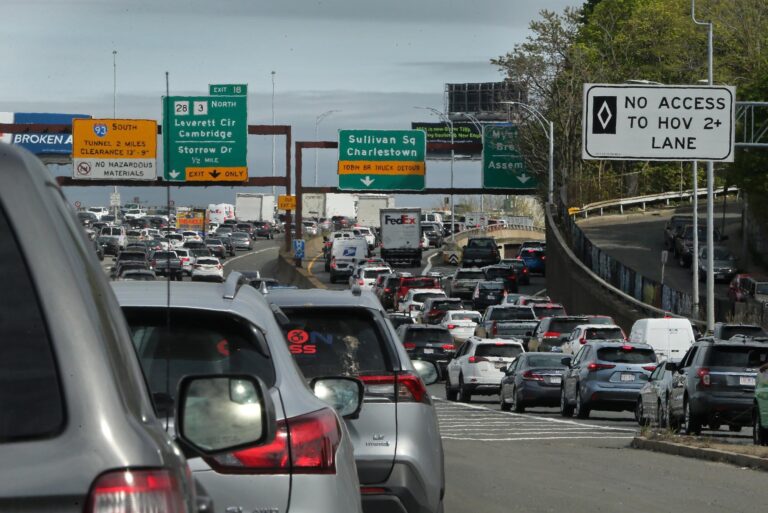Residents of Boston are increasingly voicing concerns over the city’s traffic congestion and aging infrastructure, highlighting a growing frustration with daily commutes and the state of roadways and public transit systems. As the city continues to expand, many readers urge officials to address these challenges through comprehensive planning and investment to improve mobility and safety across the metropolitan area. This article explores the range of opinions and experiences shared by Boston commuters and local stakeholders.
Table of Contents
- Readers Highlight Rising Congestion and Commuter Delays in Boston
- Community Voices Call for Immediate Infrastructure Upgrades
- Experts Recommend Expanding Public Transit Options to Alleviate Traffic
- Residents Urge Enhanced Coordination Between City Agencies for Road Maintenance
- In Conclusion
Readers Highlight Rising Congestion and Commuter Delays in Boston
Boston commuters have raised pressing concerns over the city’s escalating traffic jams, pointing to a tangible decline in daily travel experiences. Many readers describe long delays on key arteries such as the Mass Pike and Storrow Drive, where what once were manageable commutes have transformed into enduring gridlocks. Residents highlight that peak hour travel times have nearly doubled, attributing much of the congestion to increased population density and insufficient roadway expansions.
In addition to frustrating delays, some voices emphasize deeper infrastructural challenges that jeopardize efficient movement throughout the metropolitan area. Among the common frustrations are:
- Limited options for alternative routes leading to overburdened highways
- Insufficient public transit capacity to absorb rising commuter volumes
- Ongoing construction projects that exacerbate bottlenecks without clear end-dates
With the city’s growth showing no signs of slowing, readers call for urgent strategic planning and investment to alleviate the mounting pressure on Boston’s transportation network.
Community Voices Call for Immediate Infrastructure Upgrades
Local residents and daily commuters have voiced growing frustration over the deteriorating condition of Boston’s roads and public transit systems. Many emphasize that traffic congestion has reached alarming levels, severely impacting productivity and quality of life. Concerns raised include outdated traffic signals that fail to adapt to peak hour flows, potholes that endanger vehicles, and sidewalks that are unsafe for pedestrians.
Key issues highlighted by the community include:
- Chronic gridlock on major arteries like I-93 and Storrow Drive
- Insufficient public transportation options during off-peak hours
- Lack of proper maintenance funding leading to unsafe infrastructure
- Inadequate bicycle lanes and pedestrian pathways limiting alternatives to driving
Advocates are calling for immediate investment in comprehensive upgrades to the city’s infrastructure, urging policymakers to prioritize long-term solutions. Enhanced transit services, smarter traffic management systems, and dedicated funding for road repairs were among the top demands emerging from community forums and social media discussions. The general consensus points to infrastructure modernization as essential to maintaining Boston’s economic vitality and environmental sustainability.
Experts Recommend Expanding Public Transit Options to Alleviate Traffic
Local transportation experts assert that addressing Boston’s chronic traffic congestion requires a bold investment in public transit infrastructure. By broadening the range of options-from enhanced bus networks and expanded subway lines to innovative commuter rail services-the city’s roadways could see considerable relief. Such improvements would not only reduce the number of single-occupancy vehicles clogging streets but also present a more sustainable, equitable solution to urban mobility challenges.
Recommendations from specialists often highlight key strategies, including:
- Increasing frequency and reliability of existing transit routes to encourage ridership.
- Developing dedicated bus lanes that bypass traffic delays and improve efficiency.
- Integrating multimodal transit systems to create seamless travel experiences.
- Incentivizing the use of public transport through fare subsidies and improved accessibility.
Experts contend that these initiatives could substantially diminish commute times and enhance the overall quality of life for Boston residents, while supporting the city’s environmental goals.
Residents Urge Enhanced Coordination Between City Agencies for Road Maintenance
Community members have expressed growing frustration over the apparent lack of seamless collaboration between various city departments responsible for road upkeep. Residents report encountering recurring issues such as delayed pothole patches, inconsistent signage repairs, and overlapping construction schedules that exacerbate traffic congestion. Many argue that a more synchronized approach could significantly reduce repair times and improve overall commuter safety.
Key areas highlighted by locals include:
- Unified scheduling to avoid redundant disruptions
- Real-time communication channels between public works and transportation agencies
- Increased transparency and public updates on maintenance timelines
These calls for enhanced coordination underline the desire for a streamlined infrastructure management strategy that prioritizes efficiency and addresses the long-standing challenges aggravated by fragmented responsibilities.
In Conclusion
As concerns from readers continue to mount, the challenges of Boston’s traffic and aging infrastructure remain at the forefront of public discourse. With urban growth showing no signs of slowing, addressing these issues will require concerted effort from city officials, planners, and the community alike. How Boston navigates this complex landscape will be critical in shaping the city’s future mobility and quality of life.

